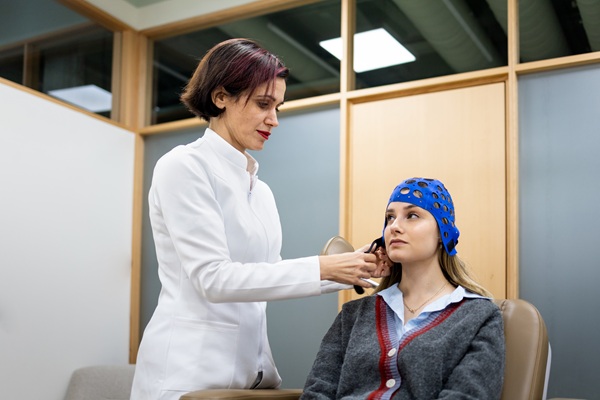When Ketamine Therapy is Recommended for Depression Treatment

Traditional treatments may not always work when it comes to treating depression, in which case a different option like ketamine therapy may be the right choice. Whether it is mild or severe depression, our brains' state is important to determine how effective the chosen treatment will be. In some cases, our brains may not respond well to traditional treatment options, or it may be that the depression is simply too severe for standard oral antidepressants to do the job properly. Fortunately, there are new, more effective types of drug therapy available.
It's important to know all your options when getting treatment for depression, and that's why we want to illustrate the effective nature of ketamine in treating depression, what ketamine is, and how effective it is at treating depression.
What is ketamine?
Originally, ketamine was used as a powerful surgical anesthetic as when it is used; it blocks pain receptors. It first began being used as an anesthetic for animals in the 1960s before receiving approval to be used for humans in 1970
It wasn't until years later that the same drug was administered to a person who had attempted suicide due to severe depression. Reports claimed that the person immediately began showing signs of changed behavior, including not wanting to commit suicide and feeling less depressed.
This led to the eventual reevaluation of the drug, and it became FDA-approved to treat depression in a clinical setting.
Ketamine therapy works differently than typical antidepressants because it immediately changes brain chemistry. Most patients report feeling euphoric immediately after taking the drug, typically lasting a couple of hours or less. This feeling is then followed by enhanced mood and less depressive tendencies.
Over time it is believed that ketamine helps to rebuild synapses in the brain that help parts of the brain communicate with each other. In patients with depression, these synapses are decreased, leading to depressed behavior.
When is this type of therapy used?
Ketamine is not a standard depression treatment and isn't considered usable in all cases. However, it has shown remarkable effectiveness for cases that it is prescribed for. Because of the nature of the drug to become addictive or be misused, ketamine is prescribed almost exclusively for patients with treatment-resistant depression.
Treatment-resistant depression is defined as depression that has shown no changes when taking at least two or more standard antidepressant drugs. Ketamine is used in conjunction with oral antidepressants and has a high rate of success.
Contact your psychiatrist about ketamine today
If you or someone you know is suffering from depression and their current medication isn't working, it might be time to contact a psychiatrist who can prescribe ketamine therapy. No one should have to live with depression, and this may be a solution for you. Learn more about your options so you can get on a path toward mental wellness.
Request an appointment here: https://futurepsychsolutions.com or call Future Psych Solutions at (803) 335-5232 for an appointment in our Columbia office.
Check out what others are saying about our services on Yelp: Ketamine Therapy in Columbia, SC.
Recent Posts
Mental health plays a critical role in overall well-being, influencing thought patterns, emotional stability, and behavior. For those experiencing persistent challenges, a formal diagnosis can provide clarity and a structured approach to healing. With guidance from a psychiatrist, individuals can better understand their condition and begin a path toward long-term mental wellness.A mental health diagnosis…
Are you looking for a TMS doctor? A TMS doctor is one that offers Transcranial magnetic stimulation to treat patients with major depressive disorder, which is also called MDD or clinical depression. Every TMS doctor utilizes their own method of treatment and many practices under other titles such as that of a psychiatrist. Learning more…
Post-traumatic stress disorder (PTSD) is a mental health condition that can develop after experiencing or witnessing a traumatic event. PTSD treatment aims to reduce symptoms and help people function better in their daily lives. It also focuses on improving their overall health and well-being. PTSD often causes anxiety, flashbacks, and emotional distress, making effective treatment…
Everyone experiences occasional anxiety, but an anxiety disorder involves persistent, excessive worry and physical symptoms that can disrupt daily routines, relationships, and overall well-being. If left untreated, these symptoms can intensify, impacting mental and physical health. Seeking help from a psychiatrist can be a significant first step toward effectively managing anxiety disorder symptoms and getting…


